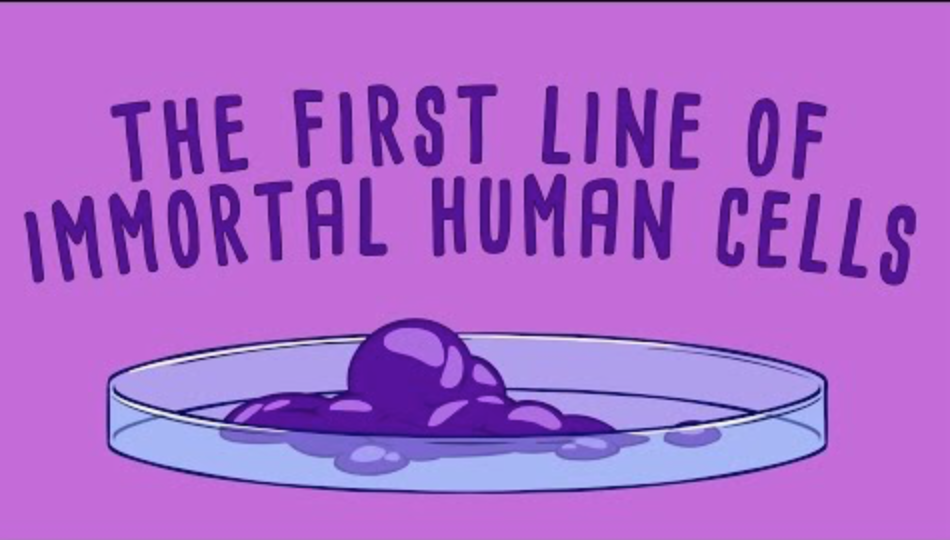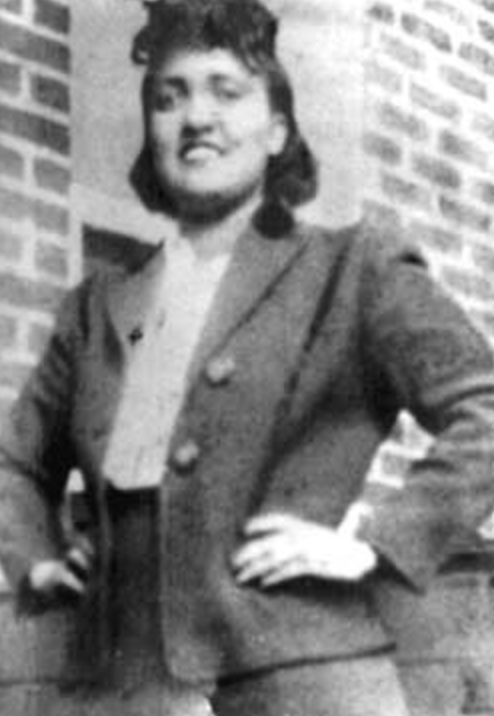JUSTICE FOR HENRIETTA LACKS

 BY SANIA QAZI – Henrietta Lacks is the women behind many remarkable advances in medicine, such as: the polio vaccine, in vitro fertilization, cloning, gene mapping, and chemotherapy. Everyone alive today has benefitted in some way from her contribution to medicine. In fact, Henrietta Lacks is probably the most important thing to happen to modern medicine in the last several hundred years. The truly bizarre thing about her story is that her contribution to medicine came only after she died.
BY SANIA QAZI – Henrietta Lacks is the women behind many remarkable advances in medicine, such as: the polio vaccine, in vitro fertilization, cloning, gene mapping, and chemotherapy. Everyone alive today has benefitted in some way from her contribution to medicine. In fact, Henrietta Lacks is probably the most important thing to happen to modern medicine in the last several hundred years. The truly bizarre thing about her story is that her contribution to medicine came only after she died.
Unlike normal human cells that can only divide a finite number of times before dying, Henrietta’s cells were essentially immortal and could divide an infinite number of times. Normal body cells divide by first making copies of their chromosomes. During replication, the entire piece of DNA cannot be replicated, so the part at the end called the telomere becomes shorter. As the cell undergoes more and more divisions, the DNA becomes shorter and shorter until the cell must undergo apoptosis, or cell death. Germ cells, used for reproduction, have an enzyme called telomerase, which prevent the telomeres from shortening. Telomerase is only available in germ cells and not in body cells. Henrietta, however, had active telomerase in her body cells, which is what made her cells immortal.
After Henrietta was diagnosed with cervical cancer in 1951, doctors quickly discovered that her cells were unique. Without obtaining her consent, they used them to conduct a multitude of biomedical studies. Henrietta succumbed to cancer a few months after she was diagnosed, but researchers continued to profit off her cells, while her family remained in poverty. While the sample of Henrietta’s cells have revolutionized biomedical research, and have led to countless life-saving discoveries, the circumstances under which they were obtained raised concerns about unethical behavior in the medical field.
During the early 20th century, African Americans were routinely used as guinea pigs for the purposes of medical research. The Tuskegee Syphilis Experiment, where black men were withheld syphilis treatment so that researchers could study the long-term effects of the disease, is just a singular example of this. African Americans were also delegated to more dangerous, low-paying work as opposed to their white counterparts. During the second world war, they were delegated to working factory jobs and were exposed to a number of toxic chemicals, which caused health concerns and genetic malformations. Because Henrietta was African American, she was not only predisposed towards a genetic abnormality, like that which she had with her cells, but was also dehumanized by the scientific community unworthy of the basic human dignity of informed consent that a white American would likely be granted.
Towards the end of the 20th century, Henrietta’s cells, nicknamed HeLa cells, were present in almost every laboratory in the country. For years, however, no one in Henrietta’s family had been informed or compensated for her contribution towards medical research. Many of them were asked to undergo several blood tests under the guise of cancer prevention and were not properly informed about why they were being tested. They remained trapped in a cycle of poverty, unable to even afford basic health insurance, unaware that researchers were making millions off Henrietta’s cells. Many in her family have recounted feeling fearful of Johns Hopkins, the hospital that originally treated her for cancer and where her immortal cells were discovered, since they had heard stories of the hospital routinely using black people for life-threatening studies. African Americans were regular participants in high risk medical studies because many in the community had been forced into poverty through systemic racism, so they were desperate for the compensation that accompanied these studies.
Going forward, biomedical companies need to practice more discretion when utilizing an individual’s genetic information. Although more progress has been made to address the past indiscretions of the medical community, such as the passage of mandatory informed consent and anti-discrimination laws, many injustices like those that impacted Henrietta and her family have gone unaddressed, and many have had to live with the consequences of the unethical behavior committed by researchers in the community.
While there is no question that it was unethical of medical researchers to obtain her cells and profit off of them, her monumental contribution, that helped progress medicine decades beyond where it would have been, should not be written off. Without her cells, a researcher at The University of Minnesota would not have been able to develop the polio vaccine. Many of the cosmetic products used today were originally tested on her cells. Her cells proliferate in the same way that cancer cells proliferate, so they are reliable subjects for certain cancer treatments. They have been used to treat countless other diseases and have grown to weigh over 50 million metric tons. While Henrietta Lacks might have lost her own life, she helped save the lives of countless others. Her legacy should be remembered forever, and biomedical research companies should continue to try and remedy their past injustices.
